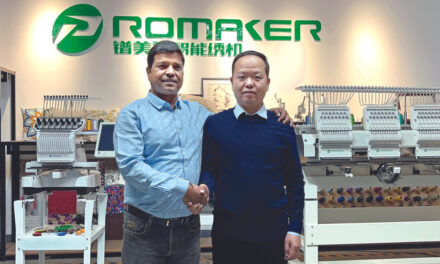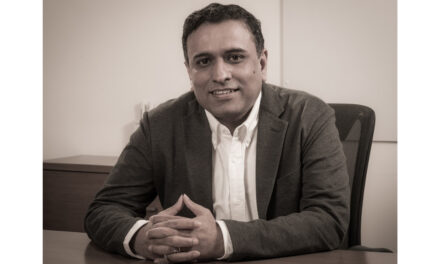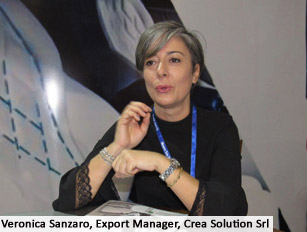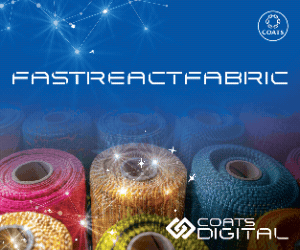
DANIS as a leading washing plant machines manufacturerexporter and provider of project management services offers its products and services all over the globe. DANIS is one of the most experienced manufacturers in Turkey, which manufactures industrial type fully-automatic washing and stone washing machines, steam dryers, extractors, ozone washing machines and dry process machines. Through the years DANIS completed successful projects in many markets of the world (Canada, Russia, Morocco, Iran, India, Pakistan, Bangladesh, Egypt, Tunisia, Algeria, Mexico, Kenya, Jordan etc.). With its computer (PLC) supported machines, presenting expertise and sharing know-how of various types of fashion applications, DANIS makes a difference. The company recently appointed Magnum Resources Pvt. Ltd. as its agent for its sales and services in India market. To know more about this tie-up and company’s further plans for the Indian market, Apparel Views Editorial team recently met and interviewed Mert Kaan Kose of Danis Makine Turizm San. Ve. Tic. Ltd. Sti, during Garment Technology Expo -New Delhi. Given are some excerpts from the interview…
Please tell us more about your company?
We are manufacturing washing machines and dry process machines in Istanbul, Turkey. We have around 5,000 sq. mtr manufacturing area and 350 employees. Also, we are an export company, which have been working since 2001 and our company was established in 1979. Starting from the 2,000s, we started exporting to Asian market. Our biggest market is in Bangladesh followed by Pakistan, Vietnam, Cambodia, Indonesia and Mauritius.
Now, we’re in India. 15 years ago we sold some machines in India but then my father, the Chairman, started focusing on Bangladesh. As of now, we’re in the process of returning to India. Our first goal is to finalise the agency with Magnum and then sign the agreement.
This year, our goal is to export 70 to 80 machines; it means that 2.5 or 3 mn has to be exported to India. Step-by-step we are working on it, this is our first step, our first goal. We want the Indian market to see our quality, technology and choose our washing machine. I know there are some local manufactures in India competitors but our technology and quality is totally different, and our customers will see that. In total, we have 85 machines. Once the customer decides the quantity of the machines they want, we will set-up the whole project.
What about the after sales service? Will Magnum be looking after that?
As our first step this year Magnum will handle it. They will send 3 or 4 technical service people to Turkey and then we will train them which will take 3 to 4 weeks. In Bangladesh and Pakistan, we have our own office, technical services and spare parts. Every month, we send them some spare parts to stock as we have 2,500 machines in Bangladesh. So, we need to keep stock. In India though, there’s no need to keep stock, we’ll just keep in touch with my agency. Maybe after 2-3 years, we’ll open an office and keep spare parts in India.
You’re already doing well in Pakistan and Bangladesh. So, when compared to those markets how do you look at the Indian industry?
India is bigger than Pakistan in garment manufacturing. The advantage that India has is the presence of the local machine manufacturers. Their prices are really cheap and so I cannot compare my prices with theirs, their prices are half of ours. At the same time our quality and technology is better. So that’s why, it’s very tough for me but, I believe that big garment manufacturers will trust our quality and technology.
So there’s a difference in technology also?
Yes I don’t know about my competitors’ machines, if they’re good or bad. I never said that if they are good or bad but I do believe that our technology and quality are totally different.
What is your message to the consumers here? Why should they choose your machines?
My message to garment manufacturers here is that our machines are very eco-friendly. Nowadays, if you look at the sustainable factor, the liquor ratio is less, the salaries are always increasing, so their prices also increase and profit decrease. So, if they want to use my machines, there’s no manpower, no water, no chemicals, and so, their profit will again increase. Our mission is to be eco-friendly. We don’t really have a choice to live in any other world, so we need to save it for the future generation.
Companies like Yilmak, Tonello are already in India since long. Why did it take so long for you to come back to India?
We’re the oldest company than Yilmak and Tonello. Just 15-20 years ago, we sold 50 to 60 machines to Arvind and Raymond groups. At that time, the company was small and we had few problems with after sale service and could not dealt properly by the Chairman, now our company has become a public company, Danish does not only mean our Chairman; it means different minds. We have revamped our whole system and that’s why we have come back to India.
In terms of innovation and technology, is there anything which differentiates you from other manufacturers?
Why we are different will be seen in the future. We are already working with top apparel brands G star, Levis and CHT- the chemical factory in Germany. We are working with them in the R & D department. So, after 5 or 6 years, you will see many new developments coming up.
 Today, liquor ratio is very important. What about liquor ratio of your machines?
Today, liquor ratio is very important. What about liquor ratio of your machines?
Yes, for sure. In our new machines, we have totally changed to digital system and there is no human touch with inner drum and outer drum. This system reduces water and chemical consumption. We have a patent for this and we’re also changing the gearbox system, which deals with energy consumption. And in the water intake we’re using the ozone system, and are working with the G star manufacturing units.
We see trends in denim going towards dry finishes. So do you think that this trend will continue? What role Danish is going to play as a machinery manufacturer?
As you know denim processing requires a lot of water and chemical and all garment manufacturers were using lots of water, chemicals, which isn’t good for the environment. But, now we see lot of dry finishes on the denim, as it is eco friendly process. We also have solution for dry process like Ozone washing machine and brushing robots. This trend will continue in future. So, they must move towards those methods, like the laser technology.
How many machines do you have? Which is your biggest base?
We have more than 5,000 machines. Major proportion out of this i.e. 30-40 per cent share is in Bangladesh.
You’ve worked in different markets, what is the difference you see in India as compared to Bangladesh as an end user of your product?
In the Asian market, Vietnam, Cambodia and Indonesia are a different side while India, Pakistan and Bangladesh are a different side. India, as compared to Bangladesh and Pakistan, is more technological and very powerful. In Bangladesh though, there is a lot of human power, which is why garment manufacturing is the biggest in Bangladesh.
How was your experience with the GTE show and how was the response?
The show has been very good to keep in touch with the customers; it has been good for us for sure. We got some good enquiries and planning to visit their factory. I am sure we will able to get some orders.

















